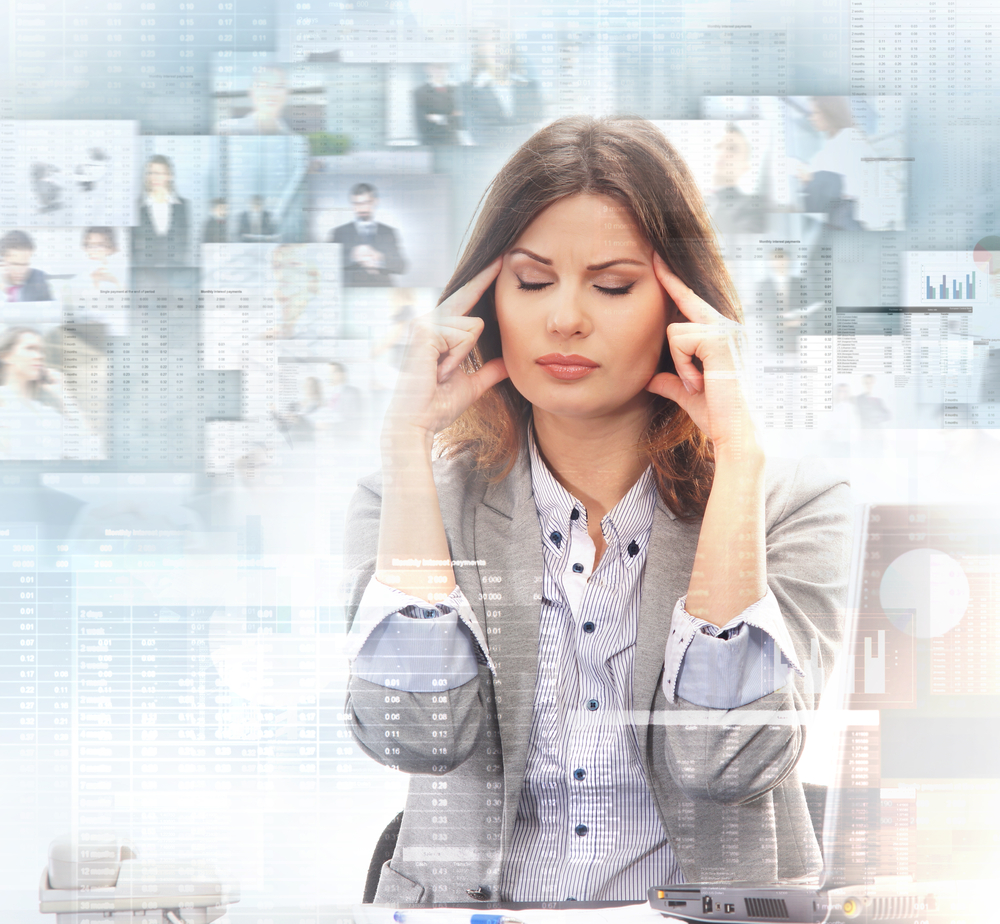How to Unplug From Information Overload

“How many of you feel like you are under information overload?”
The hands rose without hesitation throughout the room. And someone even raised both.
The response isn’t a surprise. Cell phones, tablets and laptops are important tools to help today’s worker – Boomer or Gen Y – stay in contact and keep pace with the speed of business. The devices are so technologically savvy and social that Ma Bell would roll over in her phone bag.
At the same time, today’s devices are so attached to us that they can become physically perilous, especially in the car. Users can simply feel overwhelmed by being connected from sunup to sundown – answering emails, sending out texts, dialing at stop lights (or at 75 mph), tweeting, Facebooking.
Time out, says Patty Morgan-Seager of Seager Marketing. The mental drag that goes with staying in the conversation can interrupt the balance of work and play in life. All text and no disconnect can make Jack a dull guy.
“The average person checks their phone at least 110 times per day,” Morgan-Seager told attendees at June’s National Apartment Association Education Conference and Exposition in Denver. “In 2015, the prediction is, the amount of info delivered will take more than 15 hours per day to see or hear.”
Pulling the plug on information overload
So, when are we going to sleep or play?
That may be a question that futurist Alvin Toffler pondered in the 70s – well before the Internet – when he predicted that one day people would have issues sorting through an abundance of information. Understanding an issue and making a decision could be difficult because too much information is available. You know, paralysis by analysis. That sort of thing.
Today’s “information glut” or “data smog” treads along similar waters with a perceived need to be digitally engaged all the time, such that it unknowingly interrupts your day and causes distractions that force you to miss that exit or wake up in the middle of the night in a cold sweat.
It begs the question of whether you’re doing yourself and your employer a favor by being all over the grid, receiving all that information.
There is help out there. A group of device-free advocates last year began offering info-addicts an opportunity to take a mandatory break from devices at the Digital Detox Camp, a four-day retreat with no connectivity. At last year’s inaugural camp in Anderson Valley, Calif., campers couldn’t use their devices, imbibe alcohol, talk about work and or use their real name. The camp sold out within a few days and generated national reviews.
Morgan-Seager says such outings can help executives, managers and others in the workforce find better work life balance. She says reconditioning yourself to put the devices down is the best way to start.
“I think we should consider shutting down and stepping away from our devices, just a little bit at a time,” she said. “Maybe 10-15 minutes at a time.”
Focus, filter, forget and laugh to refresh
A recent article by McKinsey & Company said that despite the benefits of the information technology and communications revolution, there is a dark side. It’s information overload and attention fragmentation. Ultimately, the devices provide an avenue for multi-tasking, which is scientifically known to make humans less productive, less creative and less likely to make good decisions.
Some of the country’s top CEOs and C-suite executives say better time management with the devices helps improve focus on individual tasks, enabling more productivity. Slowing down how much and when you ingest information is one way. For instance, one CEO says he doesn’t answer emails until the end of the day. Another refrains from always responding to emails she is copied on, and a third lays down the device on the weekends.
It’s simply a balance of focusing, filtering and forgetting.
This may be easier said than done to some, but the balance between work and play is tipping to the left for many. Morgan-Seager says that 88 percent of Americans feel that their work life balance is out of whack. That’s not hard to argue, considering the glow of white light from tablets and smart phones that lit many faces in her packed, standing room only, Denver session. Some taking notes…some multitasking.
She reminded the group that it’s important to understand the difference between working hard and working with passion. Too often, work becomes life, especially when enabled by devices.
“If you’re working for something you don’t care about, it’s called stress,” she said. “On the flip side, if you’re working hard for something you care about, it’s called passion.”
A “Certified Laughter Leader,” Morgan-Seager said one way to alleviate stress, in addition to unplugging, is to have a good gut-busting chuckle.
“You’ve got to have some laughter,” she says. “Laughter changes your perspective. It helps relax your muscles throughout your body. A good belly laugh is equivalent to burning the same amount to calories as on a rowing machine for 10 minutes.”
Perhaps some should start by laughing off the notion that being connected all the time makes for good work life balance.
(Image source: Shutterstock)







